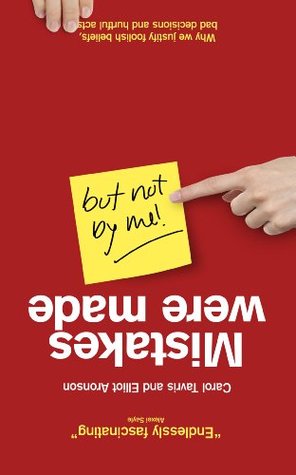“The more the suspect denies his involvement,” writes Louis Senese, vice president of Reid and Associates, “the more difficult it becomes for him to admit that he committed the crime”—precisely, because of dissonance. Therefore, Senese advises interrogators to be prepared for the suspect’s denials and head them off at the pass. Interrogators, he says, should watch for nonverbal signs that the suspect is about to deny culpability (“holding his hand up or shaking his head no or making eye contact”), and if the suspect says, straight out, “Could I say something?,” interrogators should respond
...more
Welcome back. Just a moment while we sign you in to your Goodreads account.


